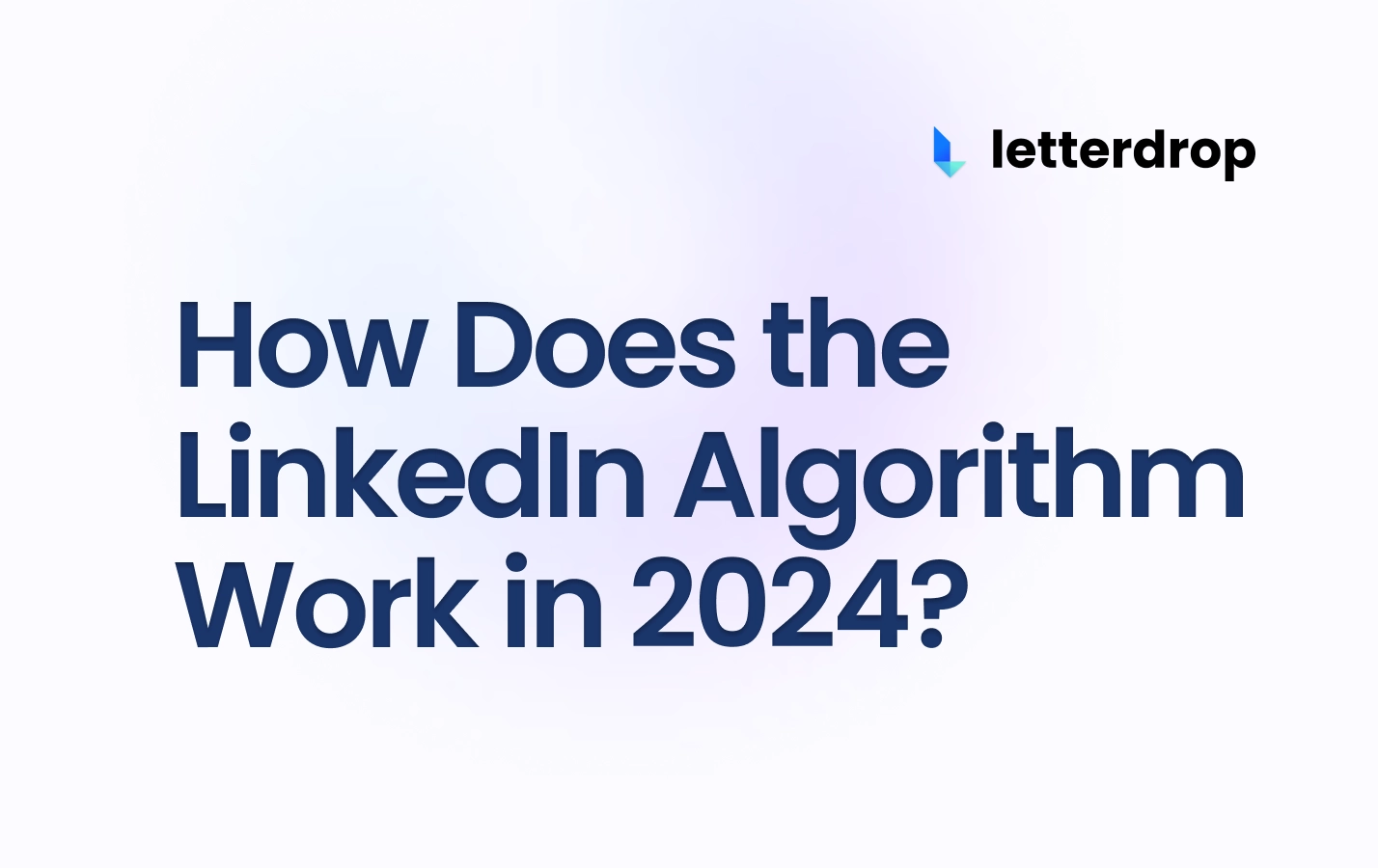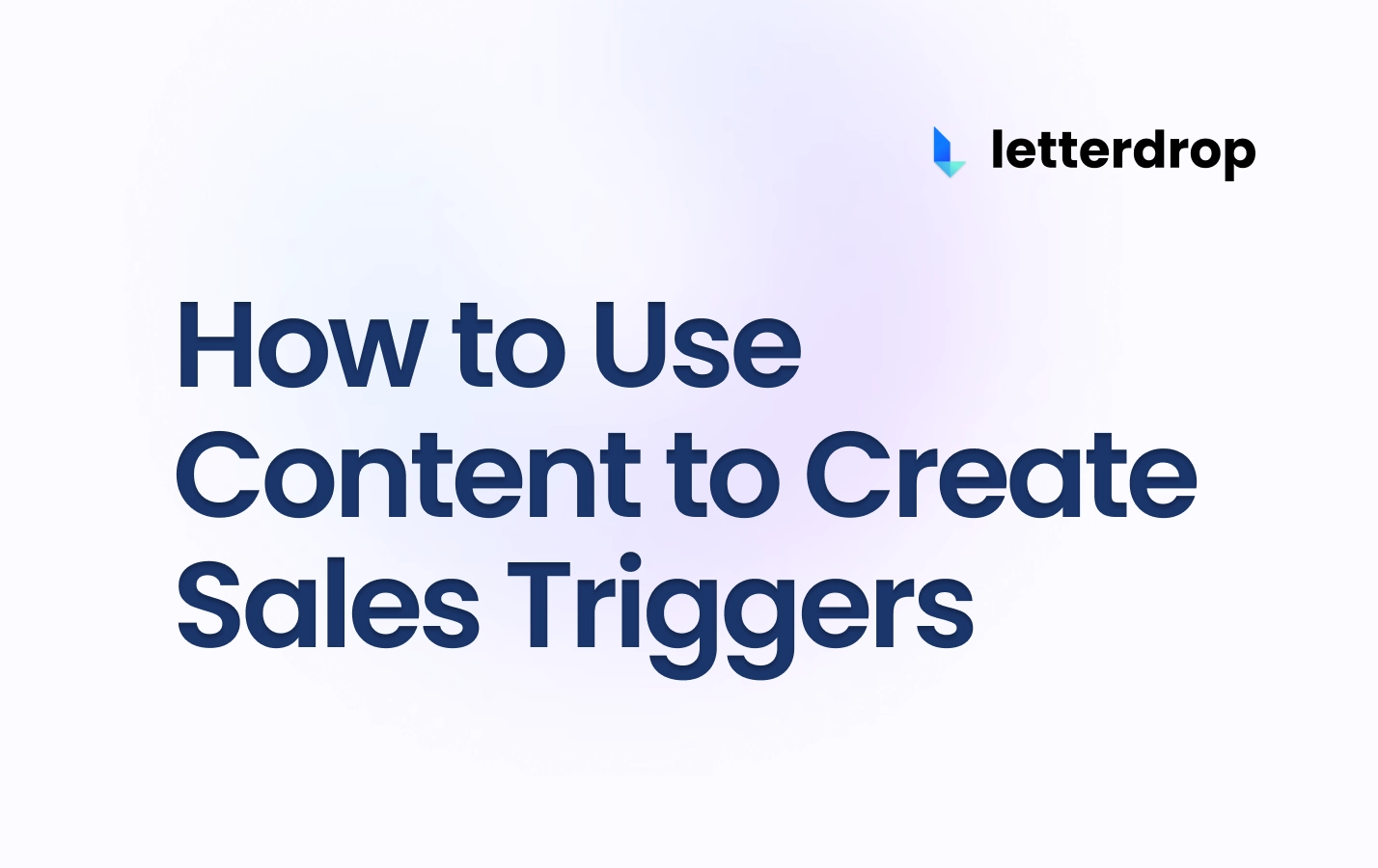10 ChatGPT Use Cases and Prompts for SEO
TL;DR:
- ChatGPT can be used for keyword extraction, title generation, meta titles and descriptions, search intent identification, buyer journey stage classification, expanding on talking points, targeting writing frameworks, summarizing top articles, and editing and correcting grammar.
- However, ChatGPT has limitations and cannot provide insights into data like keyword volume, write complete articles, perform internal linking, identify pages needing updates, analyze multiple pages at once, analyze audio and video, or integrate deeply into workflows.
- Letterdrop offers a more comprehensive AI solution for content SEO automation, including internal linking, SEO refresh detection, and information gain suggestions.
As a Content Marketer heavily invested in the world of SEO, you've probably started wondering how ChatGPT and Google Bard will impact your job. That's a fair concern. If you don't know how they work or how to use AI to do your job better, you risk falling behind in your career.
Content marketers and SEO specialists who learn to adapt AI to do better at their jobs are far more employable — and are far more likely to nab those career boosts. ChatGPT will not replace your job, but a marketer who knows how to use AI to be more efficient will.
Don't panic. We'll teach you how to be the top dog marketer who uses AI and wins the job over laggards.
How ChatGPT Works: A Non-Technical Explanation
A lot of people think ChatGPT is like Skynet from Terminator or the machines from The Matrix. It's not an all-knowing super intelligence that's going to enslave us (yet).
ChatGPT relies on AI models called Large Language Models (LLMs). OpenAI trained these models on the internet.
At a very high level, LLMs predict the next "token" given some text.
For example, if I say, "We complete each other's..." and pause, you might say, "sentences." Or maybe you watched Frozen one too many times and say "sandwiches" instead.
Why did you do that? You've read so much that you just know what's going to come next. LLMs are doing the exact same thing, except they've read the entirety of the internet. It turns out that if you train LLMs on enough data, predicting the next word starts to show something that resembles "intelligence."
So now you can use natural language prompts to answer questions, roleplay scenarios, write drafts to emails or essays, hold conversations, explain code... you get the idea.
It's similar to that old "infinite monkey" theorem. The logic goes that if you had infinite monkeys pressing keys at typewriters forever, they would eventually write stuff on Shakespeare's level.
 |
How Much Can You Trust ChatGPT?
Great, so now that you know how ChatGPT works, you'll be able to better understand what it can and cannot do for you.
As of the time of writing, ChatGPT is trained on data up to April 2023, which means:
- Its knowledge is dated. This will be updated as newer models come out, but it will likely never be in real-time. You can't ask about something that happened last week.
 |
- It can lie, make up answers or "hallucinate." Because it randomly generates the next token or string of words related to your prompt, it can and will make up stuff that sounds convincing but isn't true.
- It doesn't have access to data. You can't ask it about home prices, company valuations, or keyword search volume. But, with ChatGPT plugins, you can give it access to read live data. It can perform operations, analyze them for you, and answer your questions.
 |
ChatGPT Prompts for SEO
We've seen articles out there claiming to have 30+ ChatGPT SEO prompts — but frankly, some of those use cases are completely null-and-void given that it doesn't have access to real data, such as keyword data.
Here's a list of nine use cases and SEO prompts that are a) helpful and b) actually possible.
1. Keyword Extraction From Text
This is a handy trick to identify and extract an article's primary keywords and get an idea of what it's about.
This can also give you direction for valuable related keywords that you can look up using keyword tools like Semrush or Ahrefs.
Prompt: Extract all the keywords from this article [paste article]
 |
2. Keyword Clustering
You can prompt ChatGPT to cluster your keywords for you.
Prompt: Cluster the following keywords based on their semantic relevance
 |
3. Title Generation
Are you wracking your brain for the perfect title for your article? ChatGPT can help you write titles based on context, given SEO keywords, your ICP, and more.
It helps to rein in the AI with a very explicit prompt, which can help you avoid overly whimsical, wordy, or "keyword-stuffy" titles.
Prompt 1: Write me 3 titles [enter some context for your article here]. Avoid overly wordy titles. Avoid/include [enter your modifiers here] language.
 |
Prompt 2: Suggest a list of titles based on these SEO keywords [insert keyword list here]
 |
Prompt 3: Suggest a list of titles based on these SEO keywords and on [target audience]
 |
4. Generating Meta Titles and Meta Descriptions
Much like the above, ChatGPT can help with crafting metadata.
Rein in the AI with very specific instructions as necessary.
Prompt: Can you write a meta title and meta description for this article? [Paste article]
 |
5. Identify Search Intent
ChatGPT can help you figure out whether your keyword search intent is informational, transactional, navigational, or commercial.
You can even ask it to put this information in a table for you.
Prompt: Classify the search intents for the following keywords in a table format [insert keywords here]
 |
6. Identify Buyer Journey Stage
ChatGPT can help you identify the stage that your buyer is at when they're searching, which can help you better target them.
Prompt: Classify what stage of the buyer journey these keywords fall under in a table format [insert keywords here]
 |
7. Expand on Talking Points
The AI can help you dive deeper by expanding on a point for you.
Prompt: Can you expand on the following point: why you need to build internal links for your site
=
Prompt 2: Can you write me a basic outline
 |
8. Identify How to Target a Writing Framework
Sometimes you're faced with a topic and aren't sure how to execute on it from a framework perspective.
ChatGPT can help you organize your argument for SEO, PASO, BLUF, and TAS frameworks.
Prompt: What would a basic SEO article structure look like for the keyword "How to optimize for information gain"?
 |
9. Summarize Top Articles on the SERP for Your Keyword
This is helpful when it comes to targeting complete coverage in your own article and hitting all the necessary topics to rank.
Prompt: Summarize the following article into bullet points
 |
10. Editing And Correcting Grammar
Grammarly license who? Let ChatGPT do some proofreading for you.
Prompt: Please correct any grammatical, spelling, or syntax errors in this paragraph.
 |
What Can You NOT Use ChatGPT For in SEO?
ChatGPT is not advanced enough for thorough SEO checks. There are a bunch of things that it can't do for you:
- It can't give insight into data like keyword volume. As I've mentioned, it doesn't have access to search data.
- It can't write complete articles for you that will drive traffic. With Google SGE on its way, Google doesn't need purely AI-written content. It can do that on its own.
- It can't do internal linking. It doesn't have access to your site.
- It can't tell you what pages need an update. It doesn't have access to Google Search Console results.
- It can't analyze dozens of pages at once. Its context window is too small for this.
- It can't analyze audio and video. It needs to be combined with other tools to get a transcript on a video or audio first.
- It's a lot of work. ChatGPT is not deeply integrated into your workflows, so it's a lot of switching tabs and copy/pasting. Chat is also not the best user interface for a lot of problems.
So yes, ChatGPT can do a whole bunch of SEO tasks for you, but you can't rely on it alone.
There's A Better Way to Use AI for SEO
Worried ChatGPT is too limited and can't do everything you want it to do?
Letterdrop uses ChatGPT's models like GPT-4, amongst others, live keyword data, and your company's own proprietary data like call transcripts and marketing sites to help you truly automate your content SEO problems.
Letterdrop can do things like automate internal linking, detect pages in need of an SEO refresh, and automatically suggest sections that will increase your information gain.
It's a tool built to take a lot of jobs to be done in content SEO off your hands, so you can focus on more strategic and creative work.
Use AI Tools to Free Up Time
You can stop doom scrolling through Twitter threads on Generative AI now.
Tools like ChatGPT are just that — tools. It can take some mundane SEO basics off your hands, which leaves you more time for high-level strategy and more impactful work.
Think of ChatGPT as a 24/7 intern that can ready and synthesize information very fast.
AI is here to stay, so you can either learn how to use it to your advantage or fall behind.
Letterdrop makes use of GPT technology and, with it, can take SEO automation to the next level. Talk to us to let AI really do the heavy lifting.
Subscribe to newsletter
No-BS growth strategies and content marketing tactics in your inbox twice a month.
Related Reading
Some other posts you might find helpful
















